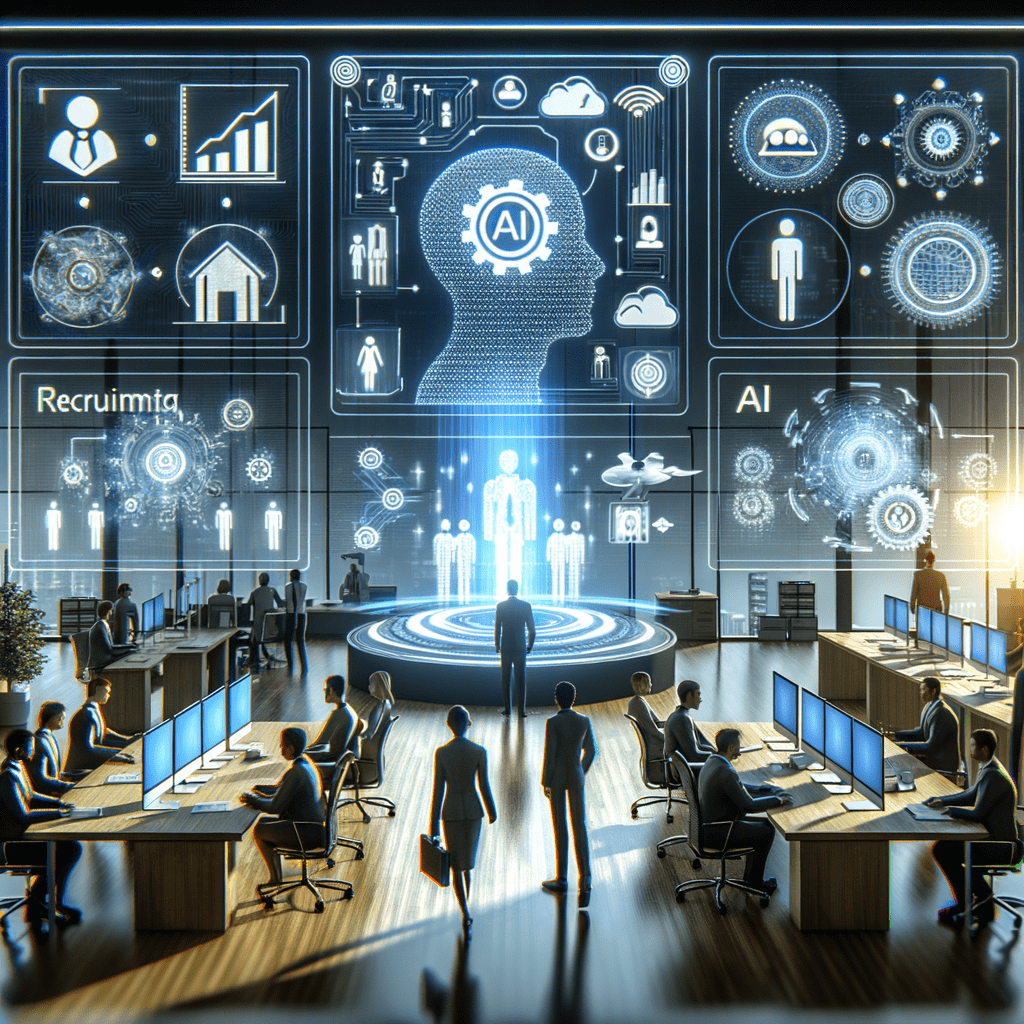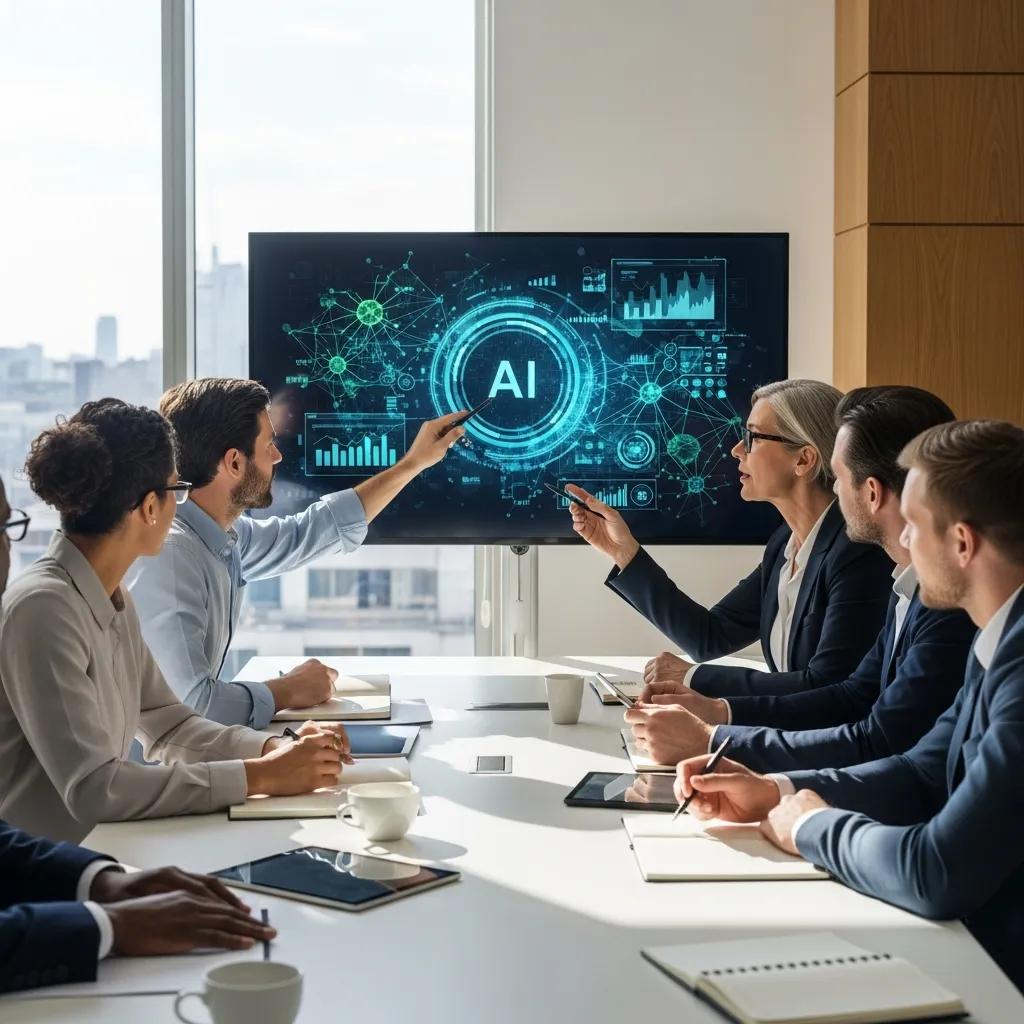Whether you run a small independent business or manage HR for a large corporation, chances are you’ve heard about the growing impact of AI in HR. Seventy percent of decision-makers believe AI in HR will be instrumental to their success in the next five years. But what does this really mean for businesses and employees?
Many people leaders are excited about using artificial intelligence in human resources. They see AI as a powerful tool to improve employee experience and organizational processes. But there’s a disconnect, because while leaders embrace the possibilities, they often overlook a crucial element: their employees’ perspectives.
The Current Landscape: Employees vs. People Leaders
People leaders tend to think of the efficiencies AI can create within departments like HR. Meanwhile, employees may see AI more negatively, such as potential job replacement. Understanding and acknowledging these varying perspectives is the first step to successfully implementing AI initiatives within a company.
Open communication with your workforce about the potential benefits and challenges AI in HR will bring is important for transparency. This will help employees understand how AI can benefit them. For example, AI can be used to develop customized training programs based on their individual skills and career goals.
A recent study from Forrester Consulting, commissioned by Workday, uncovered some surprising data that highlighted the disconnect between employees and decision-makers. While 73% of people leaders believe that AI will have a positive impact on employee experience and engagement, only 31% believe their organization’s workers feel the same.
Bridging the Gap with Training and Communication
There’s a clear need for comprehensive training and communication surrounding the use of AI in HR. A successful approach to AI integration within human resources should address not just “how” AI works but “why” it matters and benefits employees.
Sixty-four percent of business leaders believe their employees already have a solid understanding of AI, but this assumption couldn’t be further from the truth. In reality, only 34% of employees feel they are knowledgeable about artificial intelligence. This disparity underscores the need for a significant investment in AI education throughout all levels of a company.
Companies can offer workshops, online courses, and other training programs to help employees understand what AI is and how it is used in HR. This includes the application process, performance management, and other HR processes. It’s also important to be transparent with employees about how their data is being used in AI-powered HR systems.
The Power of AI in HR
Despite potential apprehensions, AI has the potential to positively revolutionize HR practices and improve the employee experience in numerous ways. From automating tasks and analyzing data, artificial intelligence is already demonstrating value to HR departments and companies at large in these areas:
- Automating repetitive tasks, such as resume screening.
- Personalizing learning and development.
- Identifying potential talent more effectively.
Incorporating AI tools for tasks like these not only streamlines HR processes, but can free up HR professionals to focus more time on strategic initiatives and engaging directly with employees. This shift can lead to more personalized support and development for individuals. It can also create a more engaging and fulfilling work environment.
For example, AI can be used to create personalized learning and development plans for employees. This can help employees develop their skills and reach their career goals. AI can also be used to automate payroll processing, benefits enrollment, and other HR tasks.
The Future of AI in HR
AI’s presence in HR is only going to increase in the coming years, impacting everything from talent acquisition and management to employee engagement and retention. AI technology is rapidly evolving. As it does, we can expect to see even more innovative applications of AI in HR. This includes the use of AI-powered chatbots to answer employee questions in real time.
HR departments and leaders that embrace this change, invest in educating their workforce, and build a culture of open communication and trust will likely find AI as a powerful tool that benefits both their employees and the company as a whole. It can also be used to identify trends in employee data, such as which employees are at risk of leaving the company.
AI in HR is not just about improving efficiency and productivity. It’s about creating a more human-centric workplace by freeing up HR professionals to focus on more strategic and people-oriented tasks.
Frequently Asked Questions About AI in HR
How is AI being used in HR?
AI in HR is currently used in various areas such as talent acquisition (screening resumes, identifying potential candidates), automating tasks (onboarding, scheduling), and improving employee experience (personalizing learning, analyzing feedback). This can help HR teams make better decisions about which candidates to hire and how to best support their employees.
AI is also being used to develop new HR tools and solutions. For example, there are now AI-powered platforms that can help companies with performance management, employee engagement, and diversity and inclusion. As AI continues to develop, we can expect to see even more innovative applications of AI in HR.
Can HR be replaced by AI?
The goal of using AI in HR is not to replace humans, but to assist and enhance the work they do. AI tools can automate tasks and provide data-driven insights, which can help HR professionals make more informed decisions. However, it’s important to remember that AI is a tool, and like any tool, it can be used for good or bad. It’s up to HR leaders to ensure that AI is being used responsibly and ethically.
But human empathy, decision-making, and relationship-building remain crucial and irreplaceable aspects of HR. The human touch is still essential in HR, and AI can never fully replace the need for human interaction.
What is the best AI tool for HR?
The best AI tool for HR truly depends on your specific needs and challenges you’d like to address. Consider factors like your company’s size, industry, budget, and the AI features most beneficial for you. For example, some tools focus on recruitment, others on talent management.
Conduct thorough research to make the most informed choice for your organization. This means considering your specific needs and requirements, as well as the potential benefits and risks of using AI in HR. There are a growing number of AI tools and platforms available, so it’s important to carefully evaluate your options before making a decision.
What is the responsible use of AI in HR?
The responsible use of AI in HR means ensuring fairness, transparency, and data privacy. It also means using AI in a way that benefits both employees and employers.
You should regularly audit AI systems for biases, be upfront with employees about how their data is used, and prioritize their well-being alongside company goals. When used responsibly, AI has the potential to revolutionize the way we work and create a more fair, equitable, and human-centered workplace.
Conclusion
Successfully navigating the future of work means understanding and incorporating tools like AI in HR in meaningful ways that benefit all stakeholders. Ignoring the employee perspective in the rush toward progress is not only short-sighted but could hinder an organization’s long-term success. AI can help to improve efficiency, productivity, and employee experience.
AI in HR, if implemented correctly, has the power to revolutionize the way we work for the better. It can free up HR professionals to focus on more strategic and people-oriented tasks, such as developing talent and building relationships.






